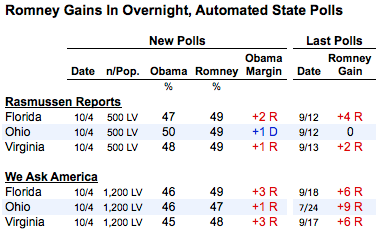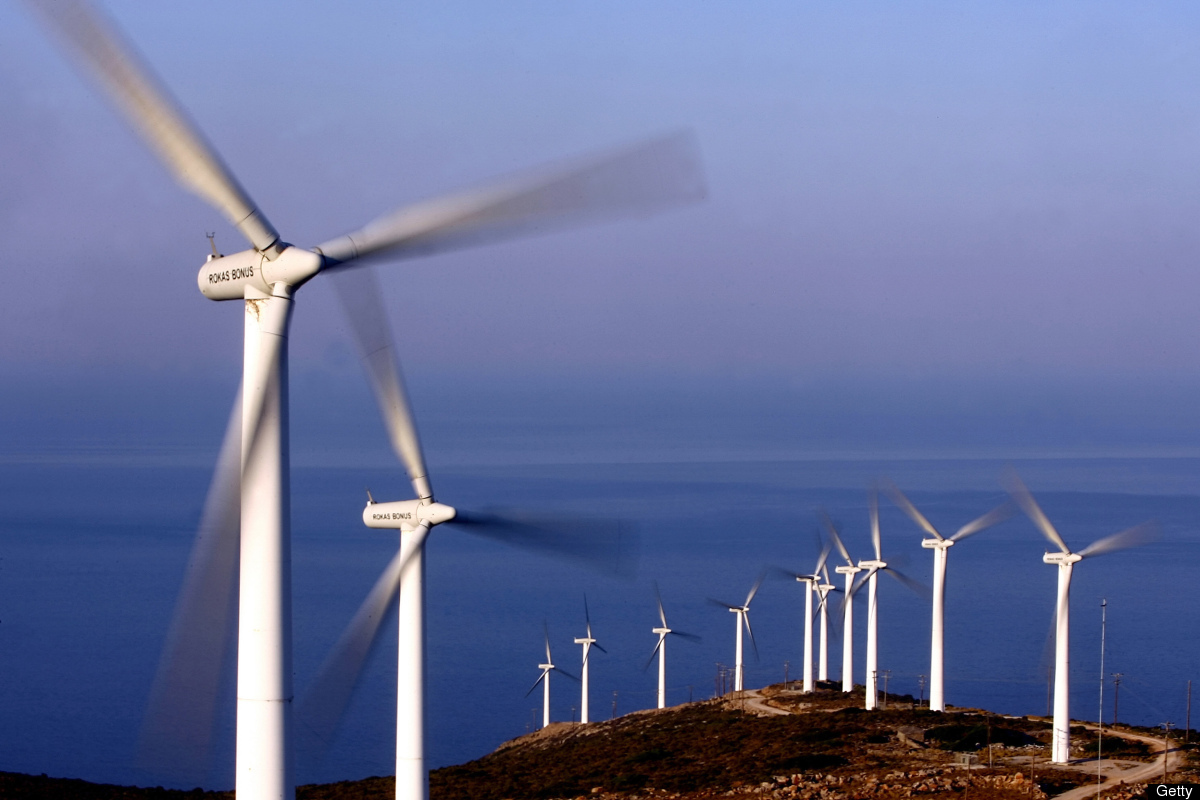Verne Strickland / October 3, 2012

Today the McCrory campaign announces formation of Democrats for McCrory, a statewide coalition of Democratic leaders who believe Pat McCrory is the best choice for governor in 2012.
By Team McCrory October 3, 2012
Raleigh, N.C. – Today,
the McCrory campaign proudly launched Democrats for McCrory, a
statewide coalition of Democratic leaders who believe Pat McCrory is the
best choice for governor in 2012. Two sitting Democratic
representatives in the General Assembly, Representative James Crawford
and Representative Dewey Hill, will lead the statewide coalition and
Democratic outreach efforts for the McCrory campaign.
Clayton Mayor Jody McLeod,
Benson Mayor Pro-Tem Frederick D. Nelson, former Mayor of Greenville
Robert Parrott, former Mayor of Salisbury Susan Kluttz and Former
Co-Chair of Richard Moore’s campaign for governor, William Dudley, will
serve as statewide Vice Chairs of Democrats for McCrory. At launch,
Democrats for McCrory has leadership and is active in 72 counties, and
plans to expand to all 100 counties in the coming weeks.
“For 44 straight months, North Carolina’s unemployment rate has been above the national average and we now have the 5th
highest unemployment rate in the country,” said Pat McCrory. “Now more
than ever, North Carolina needs leadership to fix our state’s broken
economy. No matter if you are a Democrat, Independent or Republican, we
need to put politics aside and confront the tough issues – head on.”
Rep. James Crawford proudly represents the
32nd district, which includes Granville and Vance counties. He has
served our country in the US Navy and 14 terms in the North Carolina
House of Representatives. Currently, he leads the House Appropriations
Committee and serves on the Health and Human Services, Judiciary and
Transportation committees.
“As the former Mayor of Charlotte, Pat
McCrory has the executive experience to lead and he has proven time and
again that he can work effectively across party lines to tackle tough
problems and deliver results,” said Representative Crawford. “Pat
McCrory’s record as Mayor of Charlotte is impressive, where he helped
grow the city, expand opportunities and improve the quality of life for
all residents. As governor, I’m confident he will place the interest of
North Carolina before the interests of any political party and lead a
Carolina comeback for all North Carolinians.”
Rep. Dewey Hill proudly represents the 20th
district of North Carolina, which includes Brunswick and Columbus
counties. He has served our country in the US Navy and 10 terms in the
North Carolina House of Representatives. Currently, Rep. Hill serves as
Vice Chair of the House Agriculture committee and is a member of the
Environment, Finance and Commerce and Job Development committees.
“As a lifelong Democrat, I proudly support
Pat McCrory for governor,“ said Representative Hill. “I applaud Pat
McCrory for the positive campaign he is running, and I believe that
speaks volumes about his integrity, trustworthiness and ability to lead
and bring people together, not divide them. Democrats, Republicans and
Independents can be confident that Pat McCrory will put aside politics
and focus on what really matters: results for the people of North
Carolina.”
“As a child growing up in a small town and
as a former mayor of a big city, Pat McCrory understands the needs and
challenges facing towns and cities across our state,” said former Mayor
of Salisbury Susan Kluttz. “I am confident he will be an outstanding
governor.“
“In this campaign, Pat McCrory has clearly
outlined a vision for the future of North Carolina, including plans for
our K-12 schools, higher education, energy and the economy,” added
William Dudley. “His positive message is one that resonates with all
North Carolinians.”
Statewide Co-Chairs
Rep. James Crawford (D- Granville, Vance)
Rep. Dewey Hill (D- Brunswick and Columbus)
Vice-Chairs
Mayor Jody McLeod (D- Clayton)
Mayor Pro-Tem Frederick D. Nelson, Jr. (D- Benson)
Former Mayor Susan Kluttz (D- Salisbury)
Former Mayor Robert Parrott (D- Greenville)
Mr. William Dudley (Former Co-Chair of Richard Moore for Governor)
County Leadership
Edmund Gant – Alamance
Tracy Jenkins – Alexander
Bill Thacker – Anson
Ruth Patrick – Ashe
Della Carter – Ashe
Ashley Carter – Ashe
Missy Shatley – Ashe
Tiffany Shatley – Ashe
Thomas Davenport – Bertie
Dotsie Dunlow – Bertie
Monica Lassiter – Bertie
Pat Melvin – Bladen
Eddie Cartrette – Brunswick
Edward M. Gore – Brunswick
A.B. Wexler – Buncombe
Kim Delk – Buncombe
Rob Harriger – Burke
Leonard and Frances Duckworth – Burke
Larry and Gail Throneburg – Burke
Helen Harriger – Burke
Steve Bailey – Burke
Gregory Faggart – Cabarrus
J Bernard Smith – Cabarrus
Sara Childers – Cabarrus
Wade Heffner – Caldwell
Thomas Proffit – Caldwell
Betty Messer – Carteret
Lela C. Barker – Caswell
Christopher Cook – Catawba
John Gray – Chatham
Mr. and Mrs. Harold J. Milholen Jr. – Chatham
Lasa C. Brown – Chowan
Charles Dedmon – Cleveland
Emmalyn M. Preston – Cleveland
Kristopher Ward – Columbus
Henry “Bud” Stilly – Craven
Johnny Wood – Cumberland
David Boliek – Cumberland
Roger Hall – Cumberland
Marilyn Smith – Dare
Linda S. Gardner – Davidson
Richard Whitt – Davie
Timothy Lipka – District of Columbia
Winslow Tew – Duplin
Robert K. Yowell – Durham
Roy G. Taylor – Durham
Richard C. Anderson – Edgecombe
George Bell – Forsyth
Darrell B. Rice Sr. – Franklin
James Dobies – Gaston
Michael Maxson – Granville
Joan E. Mclawhorn – Greene
Dwight Stone – Guilford
Jim Pierce – Guilford
Mayor Mark Brown – Guilford
Charles Stevens – Guilford
Deborah West – Guilford
Barbara Caffrey – Guilford
Mary Anne Lamkin – Guilford
Craigavon Turner – Guilford
Leemond E. Branch – Halifax
Ellen Wiser – Harnet
Susan Lee – Henderson
Byron Simonds – Hertford
Jan Dial Smith – Hoke
Pastor Shelley Dial – Hoke
Mark Willis – Iredell
Libby Jones – Jackson
Julie Medlin – Johnston
Ricky Ward – Johnston
Sorrell Saunders – Lee
Nelson Johnson – Lenoir
Jamin Simmons – Macon
Jennie Austin – Madison
Al Chesson – Martin
Deborah Hargett – Martin
Louis Bledsoe Jr. – Mecklenburg
Douglas Powell – Mecklenburg
Mary Faucette – Mecklenburg
Bill Browning – Mecklenburg
Francis D. Joffrion – Mecklenburg
Rasheed Ansary – Mecklenburg
Lucille Furr – Mecklenburg
Helen Duncan – Mecklenburg
Walter Somerville Jr. – Mecklenburg
Carolyn Davis – Mecklenburg
Laura Gazzard – Mecklenburg
Brig. Gen. Fisk Outwater – Mecklenburg
Joseph Pearlman – Mecklenburg
Lewis Smith – Montgomery
Terry Harvel – Montgomery
Chuck Barnes – Moore
Donnie Perry – Nash
June S. Shearin – Nash
Murdoch Macrae Dunn III – New Hanover
George Jones – Onslow
Larry W. Lee – Orange
Vernon P. Burns – Orange
Cheryl McLaughin – Pamlico
James Dallas – Person
William Blount – Pitt
Robert Kemp III – Pitt
William Bogey – Pitt
Angela Salisbury – Randolph
Ray & Janice Simmons – Richmond
Larry H. Stone – Robeson
Ran Sutton – Robeson
Aggie Deese – Robeson
Thomas and Janice Lee – Robeson
John Robertson – Robeson
Mary R. Dodson – Rockingham
Cathy Westmoreland – Rockingham
Regina Bradshaw – Rowan
Ross Mccanless – Rowan
Judy S. Freeman – Rutherford
Sharon M. Roberts – Sampson
Hal Jernigan – Scotland
Roger lisk – Stanly
Ellen Monteith – Swain
John Hendley – Union
Dr. Deborah Aten – Union
Mr. and Mrs. James D. O’Geary – Vance
Jim W. Crawford III – Vance
David R. Holmes – Wake
Gerald Branker – Wake
Lori Richards – Wake
Lacy Pittman – Wake
Eileen Cochrane Snyder – Wake
Ron Wellman – Wake
Sibyl Murchison – Wake
Dayle Kelley – Wake
Jimmy Wall – Wake
Baron Hignite – Wake
John Blalock – Warren
Darrell Horne – Wayne
Franklin Lane – Wayne
John Boyette – Wilson
Wallace Edge – Yancey
John Thornbury – Yancey











































